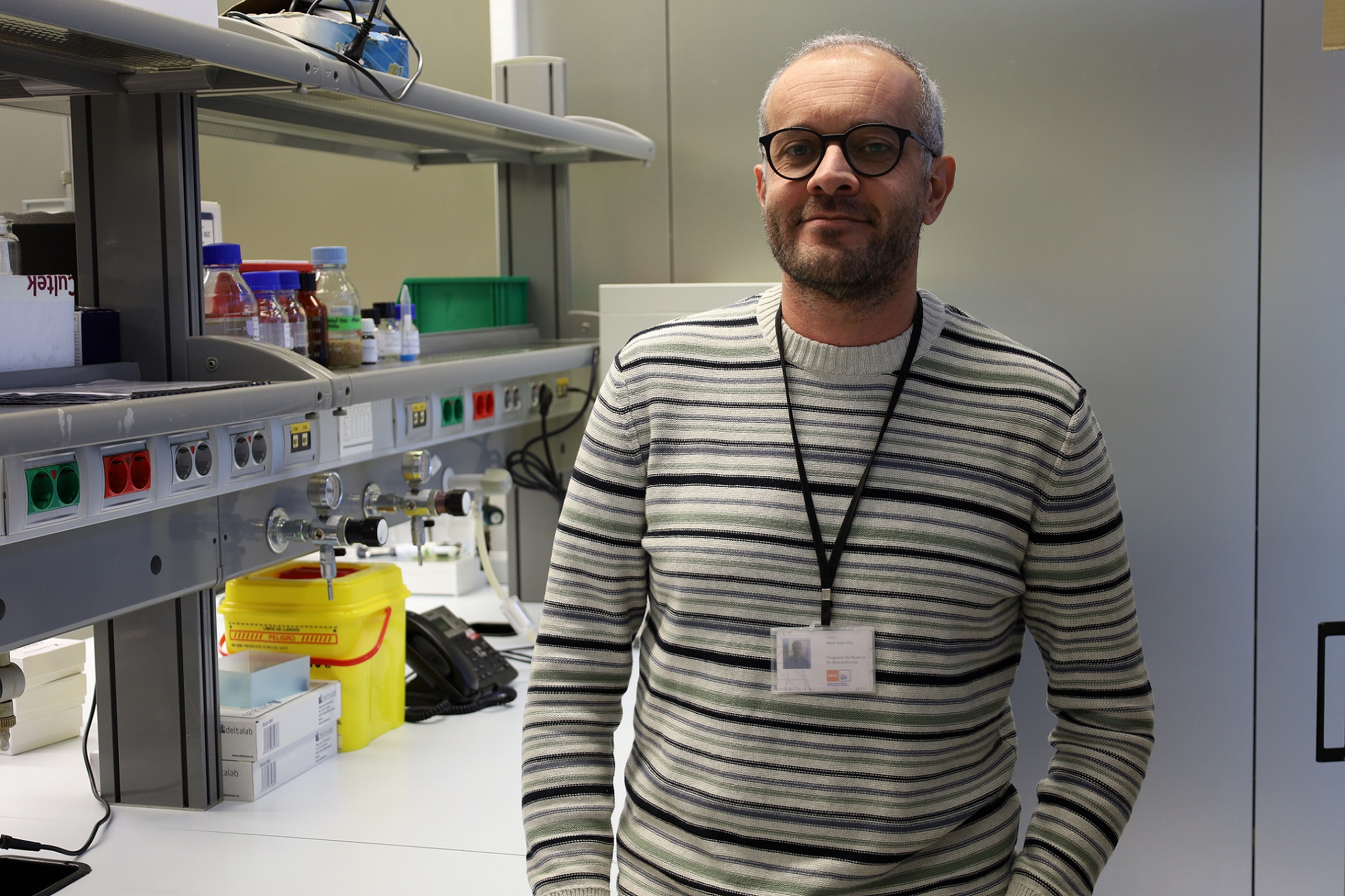
11/07/2024 - General information
A joint team from the Barcelonaβeta Brain Research Center (BBRC), a research center of the Pasqual Maragall Foundation, together with the Hospital del Mar Research Institute, has shown that habitual food consumption rich in omega-3 fats, both of plant and marine origin, is related to a better capacity of the brain to metabolize the glucose necessary for its functioning, although the first damage related to Alzheimer's disease has already occurred. The results of the study, recently published in the journal Alzheimer's and Dementia: Diagnosis, Assessment & Disease Monitoring, indicate that preventive nutritional interventions, especially during middle age, could help improve brain function and prevent Alzheimer's-associated dementia.
The role of omega-3s
Before the clinical symptoms of Alzheimer's disease appear, there are already specific areas of the brain that have difficulty metabolizing glucose. "This is important because it is the organ in the body that uses it the most," highlights Aleix Sala-Vila, author of the study, member of the Cardiovascular Risk and Nutrition Research Group of the Hospital del Mar Research Institute, and scientific collaborator of the BBRC.
Omega-3s contribute to the proper functioning of the receptors necessary for glucose uptake in the brain. These fats are incorporated into cell membranes, thus facilitating the continued use of glucose. In this sense, the researcher details, "incorporating these omega-3s into the diet can be beneficial to have a brain resistant to the changes that are occurring before the onset of Alzheimer's disease."

320 volunteers to study brain glucose metabolization
The study, focused on exploring whether omega-3 intake is linked to better glucose absorption in vulnerable brain areas in Alzheimer's, has included data from 320 volunteers from the Alfa+ cohort, belonging to the Alfa cohort, driven by the "la Caixa" Foundation. This is a cognitively healthy population, without clinical symptoms of Alzheimer's, but mostly descendants of people affected by the disease, and therefore with a high genetic risk of developing it. The volunteers were injected with glucose labeled with a tracer to check, using an MRI, how it was metabolized in different areas of the brain. The omega-3s they had in their blood were also quantified.
The results show that omega-3s of plant origin (provided, for example, by foods such as walnuts or soy) were associated with better use of brain glucose, especially in participants with a higher genetic risk (carriers of the APOE-e4 gene). On the other hand, omega-3 of marine origin (from oily fish) were more beneficial in those people who, despite not presenting symptoms of Alzheimer's, were already beginning to have the accumulation of proteins characteristic of the disease (amyloid and tau ). Therefore, "it is suggested to maintain adequate levels of omega-3 in the blood to prevent the disease, especially in people at higher risk of developing dementia. This is achieved by incorporating foods such as nuts and oily fish into the diet," concludes the researcher.
Bibliographic reference: Lázaro I, Grau-Rivera O, Suárez-Calvet M, et al. Omega-3 blood biomarkers relate to brain glucose uptake in individuals at risk of Alzheimer's disease dementia. Alzheimer's Dement. 2024; 16:e12596. https://doi.org/10.1002/dad2.12596
The work was funded by the California Walnut Commission.
About Alzheimer's disease
It is currently estimated that Alzheimer's and neurodegenerative diseases affect 900,000 people, a figure that translates into one in ten over 65 years of age and a third of those over 85. These pathologies are one of the main causes of mortality, disability and dependency. If effective care is not found and with life expectancy increasing, in the year 2050 the number of cases could triple in the world, exceeding one and a half million people in Spain alone, something that could collapse the health and care systems.
About the Barcelonaβeta Brain Research Center and the Pasqual Maragall Foundation
The Barcelonaβeta Brain Research Center (BBRC) is the research center of the Pasqual Maragall Foundation, promoted by "la Caixa" Foundation since its creation, dedicated to the prevention of Alzheimer's disease and the study of the cognitive functions affected in healthy and pathological aging.
The Pasqual Maragall Foundation is a non-profit entity that was born in April of 2008, in response to the commitment made by Pasqual Maragall, former mayor of Barcelona and former president of the Generalitat of Catalonia, when he publicly announced that he had been diagnosed with Alzheimer's disease. The Foundation's mission is to promote research to prevent Alzheimer's and offer solutions that improve the quality of life of affected people and their caregivers.
Communication Department of the Pasqual Maragall Foundation:Barcelonaβeta Brain Research Center
Paula Talero
93 316 09 90
Communication Agency
ATREVIA
Cristina Campabadal / Esther Seró
ccampabadal@atrevia.com/ esero@atrevia.com
644 24 11 67 / 667 63 29 09
Media Relations Area of ??the "la Caixa" Foundation
Andrea Pelayo
apelayo@fundaciolacaixa.org
618126685
Servei de Comunicació:
Marta Calsina Freixas(ELIMINAR)
Tel:
(+34) 93 316 06 80
Doctor Aiguader, 88
08226 Barcelona
© Institut Hospital del Mar
d'Investigacions MèdiquesLegal Notice and Privacy Policy | Cookie Policy | Site Index | Accessibility | Find Us | Contact